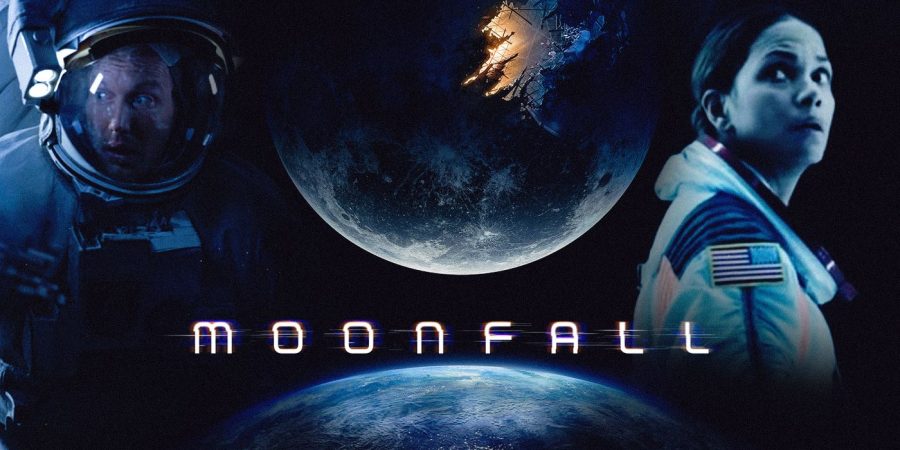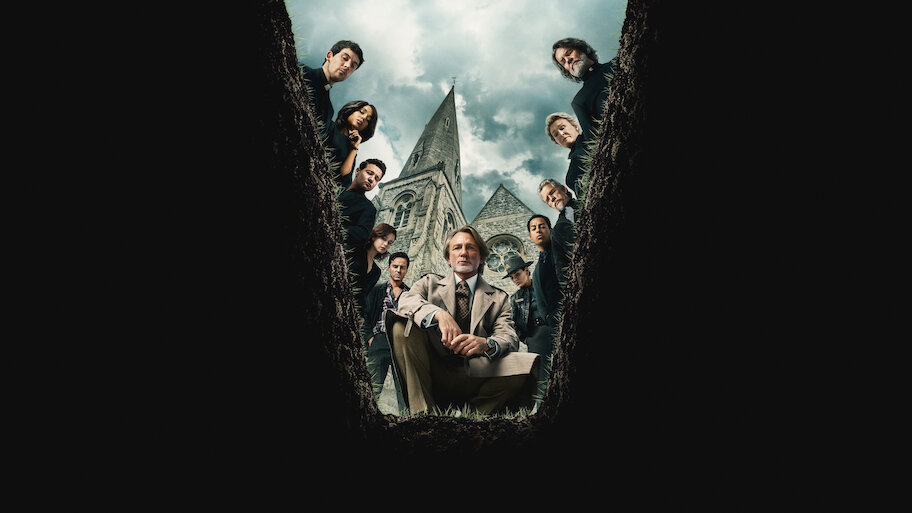Roland Emmerich has made his most ridiculous disaster film yet. It might just revitalize the genre.
As “Spiderman: No Way Home” makes its way towards a historic domestic box-office haul, critics are hailing the return of movie-going. Sitting in a dark room, munching on overpriced popcorn, and hearing strangers’ reactions to every slightly-funny joke are just a few joys of the experience that had long been halted by the COVID-19 pandemic. Another joy: watching several minutes of movie trailers while you wait for the main event. One trailer that’s had various film-focused parts of the Internet abuzz is that for Roland Emmerich’s latest disaster film, “Moonfall.”
The director of classics like “Independence Day,” “Stargate,” and “The Day After Tomorrow” as well as the pop culture moment that was “2012” appears to have outdone himself in his latest work. Starring John Bradley (“Game of Thrones”), Halle Berry, and Patrick Wilson, “Moonfall” imagines this ragtag trio teaming up to stop a dire impending disaster: the moon falling out of orbit. Not only that, but there’s something intelligent and evil inside the moon. The trailer has the heroes take a rocket to space to fight the moon while Creedence Clearwater Revival’s “Bad Moon Rising” fittingly plays in the background. It looks ridiculous — because it is ridiculous — and yet, it also looks enjoyable in the way that only a self-aware film can be.
Of course, “Moonfall” isn’t the only self-aware disaster film to come out recently. Much was made of Netflix’s star-studded “Don’t Look Up,” a 2021 climate-disaster film meant to satirize humanity’s willingness to ignore impending disasters, and those trying to warn us of them, until it’s far too late. Despite its impressive cast, the film received mixed reviews, with many critics deriding the cynical tone of the film as overbearing and depressing. The general consensus: it hit too close to home. “Moonfall” sidesteps this pitfall by avoiding any serious parallels to the real world. There is no statement to be made, no call to action. It’s a disaster movie that knows it’s a disaster movie and embraces its task of providing silly escapism.
You can’t turn on the news without seeing a story about wildfires, tsunamis, earthquakes, freak snowstorms, or unexpected heat waves. On a day-to-day basis, our lives feel like they take place in the very disaster films we’ve entertained ourselves with over the past decade (“The Impossible,” “San Andreas,” “Geostorm,” “Greenland.”) At the same time, there is a general fatigue of those serious entries in the disaster genre which recycle the same themes: who deserves to be saved? Why do we lose our common humanity in times of crisis? How can we avoid this fictional future becoming our grim reality? “Moonfall” takes one small step for a blockbuster and one giant leap for the disaster genre. It asks: how epic would it be if we fought the moon?
With “Moonfall,” Emmerich nods to his history of outsized disaster films by making his most ambitious project to date. Not only is the moon out of orbit, but it’s also hiding lurking evil that could be a number of interesting twists: aliens, the government, an evil moon ghost. Moonfall comes at a moment when this kind of ridiculous disaster — one so improbable that Bradley’s character, KC Houseman, is rightfully branded a conspiracy theorist — is more welcome than ever.
In real life, disasters are something to be afraid of. In disaster movies, they’re something to be amazed by. When Houseman goes up into space, he’s wowed when his iPhone floats by his face. Later, he snaps a picture of space with his phone camera while Berry and Wilson’s characters look on in annoyance. He has a childlike wonderment about the whole moon fiasco, something you cannot say about the stone-faced disaster heroes that preceded him. Houseman is us. He reacts like an audience member that’s been transported on-screen, excited to see if he’s going to save the world or die trying. That’s what makes “Moonfall” such a special entry in Emmerich’s canon and the disaster genre as a whole. Also, did I mention they fight the moon?
Image courtest of Collider.










